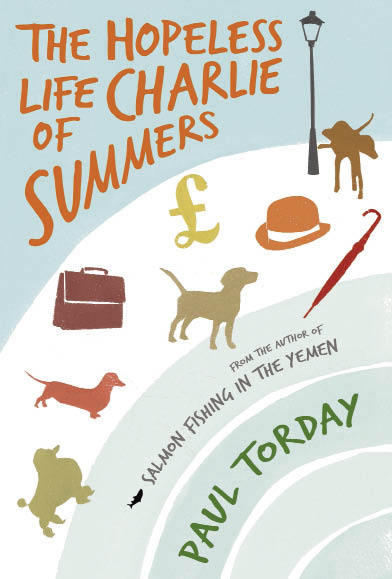Paul Torday was 59 when his first novel, the highly acclaimed Salmon Fishing in the Yemen, was published in 2006. Since then, he can barely have stepped away from his keyboard. The Hopeless Life of Charlie Summers is his fourth novel and it represents a return to the comic tone of Salmon Fishing.
Or at least it does in part. There are scenes of high comedy here, but some pretty dark swirls too. And hanging over the whole book is the question of what makes for a fulfilled life. The narrator, Hector Chetwode-Talbot — known, mercifully as ‘Eck’ — is a former soldier who has drifted into the City. He is, as he says of himself, ‘a minor character, a walk-on part’, whose duties consist principally of taking rich clients out to lunch and promising to make them even richer by investing in his firm’s Styx Fund.
As this is the turn of the century with the City awash with money, these promises are not hard to keep. On holiday in the south of France, Eck meets Charlie Summers, a man who resembles him so closely he could be his older brother. Charlie has spent his life bumping along the bottom, from one hopeless scheme to another. His latest plan, he explains excitedly, is to flog a Japanese dogfood of deeply uncertain provenance called Yoruza.
Back in England, their paths cross again. Charlie by now calling himself a ‘dog-nutritionist’, is selling Yoruza by the sackload — despite its having ‘a powerful emetic effect’ on any dog unwise enough to touch it. While Eck is troubled by a persistent sense of not having any purpose in life, Charlie, his cheery doppelgänger, bumbles blithely on, living from moment to moment.
Both, however, occupy much the same moral, or amoral, universe — a fact Eck becomes increasingly aware of, as the City lurches from boom to bust. When Eck is told by his boss to liaise with a mysterious Afghan called Mr Aseeb, the once-grey indeterminacy of his life turns into something steadily darker and more sinister.
Torday is a peculiarly old-fashioned writer — one whose characters are more likely to ‘ponder’ than to think and to ‘procure’ a bottle of wine rather than buy one. At one point a ‘butcher’s boy’ even makes a cameo appearance. Yet for all this apparent archness, there are shades of both Greene and Ambler here, both in the crispness of his exposition and the marrying of humour with something close to tragedy.
When he’s being funny, he can be very funny indeed. A scene in which Charlie gets involved in a scheme to market Dutch wine — matured in vats that are also used to pickle beetroot in order to give it its ‘special flavour and colour’ — had me spluttering helplessly away in the ‘quiet carriage’ of an Intercity train. He’s also particularly good at creating middle-aged lovelorn men who see a faint prospect of happiness before them, but don’t know if they have the confidence to grab it.
The difficulty with The Hopeless Life of Charlie Summers is that the two strands don’t tie up — either tonally or thematically. While Charlie and Eck may look like one another, their fates don’t really belong together. As for the plot, it’s fairly predictable, up to the point where it starts becoming contrived.
For all that, Torday is an enjoyable, as well as an unusually heartening writer to read — in part because he’s consistently generous towards his characters without glossing over their less attractive aspects. I suspect his fans will forgive him his flaws and go on relishing his unpredictability.






Comments